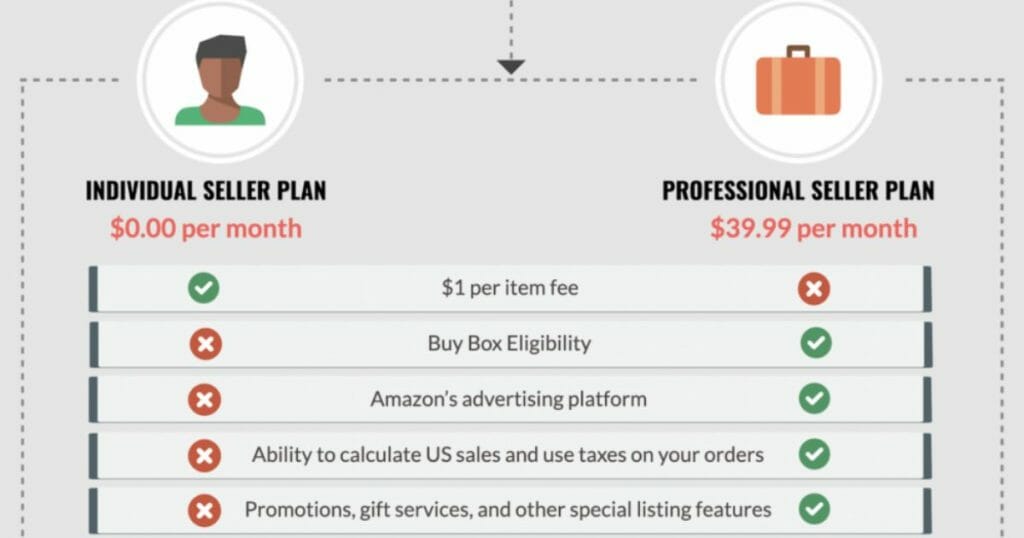There are many things to consider before deciding on an Amazon seller account. One of those decisions is whether to sell as an individual or a professional seller.
The decision to go with a professional account comes down to how serious you are about your Amazon business. Generally, professional accounts have more services and features than individual ones.
Sell as individual
If you’re just starting out, or you have a small inventory that doesn’t quite fit into the FBA model, an individual Amazon account may be ideal for you. It’s a pay-as-you-go plan with no monthly subscription fee, which means you can test the waters before switching to a professional seller account.
You’ll need to provide your business name, tax identification information, and contact details to set up an individual Amazon seller account. These details will be used by Amazon and customers to communicate with you directly.
As you gain experience and sales, you’ll want to move up to a professional seller account if your monthly sales are more than 40 items. The Professional plan is more expensive, but it can be worth the cost if you expect to see significant growth in your sales on Amazon. The extra features will help you build a strong brand and increase your visibility online. Plus, it will allow you to be selected for the coveted Buy Box.
Sell as a private label
Private labeling is a great option for any seller looking to get started in Amazon. It allows you to build a brand identity and sell products that aren’t generic.
The process to become a private label seller is long and takes a lot of patience. However, it can also be very profitable.
To start, you’ll need to select a product that has a high enough demand but not too much supply (aka competition). This can be done using tools such as Ubersuggest and Google Trends.
You’ll then need to find a manufacturer that can produce your products at a reasonable price. Many manufacturers offer ODM services and are willing to reduce their minimum order quantity to suit your needs.
Once you’ve found a suitable manufacturer, you can then set up your account and make your first order. You’ll need to ensure that the quality of your products is up to par. To do this, check their product photos and ask for a sample to be sent to you before you place an order.
Sell as a business
Sell as a business on Amazon involves creating an account and sending inventory to be sold via the marketplace. This method is often a good choice for those who want to build a sustainable, long-term business with their own supply chain.
Depending on the size and complexity of your business, it can take anywhere from a few days to months to sell. However, there are some things you can do to make the process go quicker and more smoothly.
Before selling, it’s a good idea to get an accurate valuation of your business. This will give you an idea of the profit your business is likely to produce.
It’s also important to get all your products registered with Amazon’s Brand Registry. This will help preserve the integrity of your brand and stop other sellers from claiming your products.
If you are thinking about selling your FBA business, it’s a good idea to consult an M&A advisor. They can advise on the best time to sell and what multiple to accept based on your valuation.
Sell as a professional
Amazon offers two types of seller accounts geared toward the needs of low-volume individual sellers and high-volume business sellers. Each type of account has its own fees and features, but they each offer valuable tools to help small and large sellers.
The professional seller plan is best for any Amazon business owner who wants to scale their Amazon sales and grow their brand. It costs more than the individual seller plan but includes access to many tools and resources that can help you sell more items on Amazon.
The individual seller plan is a good option for casual or low-volume Amazon sellers who aren’t ready to open up their Amazon business or don’t want to pay a subscription fee. It also makes more sense for sellers who are testing the waters with a few products or are selling less than 40 items per month. The only downside to the individual seller plan is that you are charged a $0.99 fee for each item sold.
Did you miss our previous article…
https://reviewsparks.com/blog/tacos-advertising-metrics/



